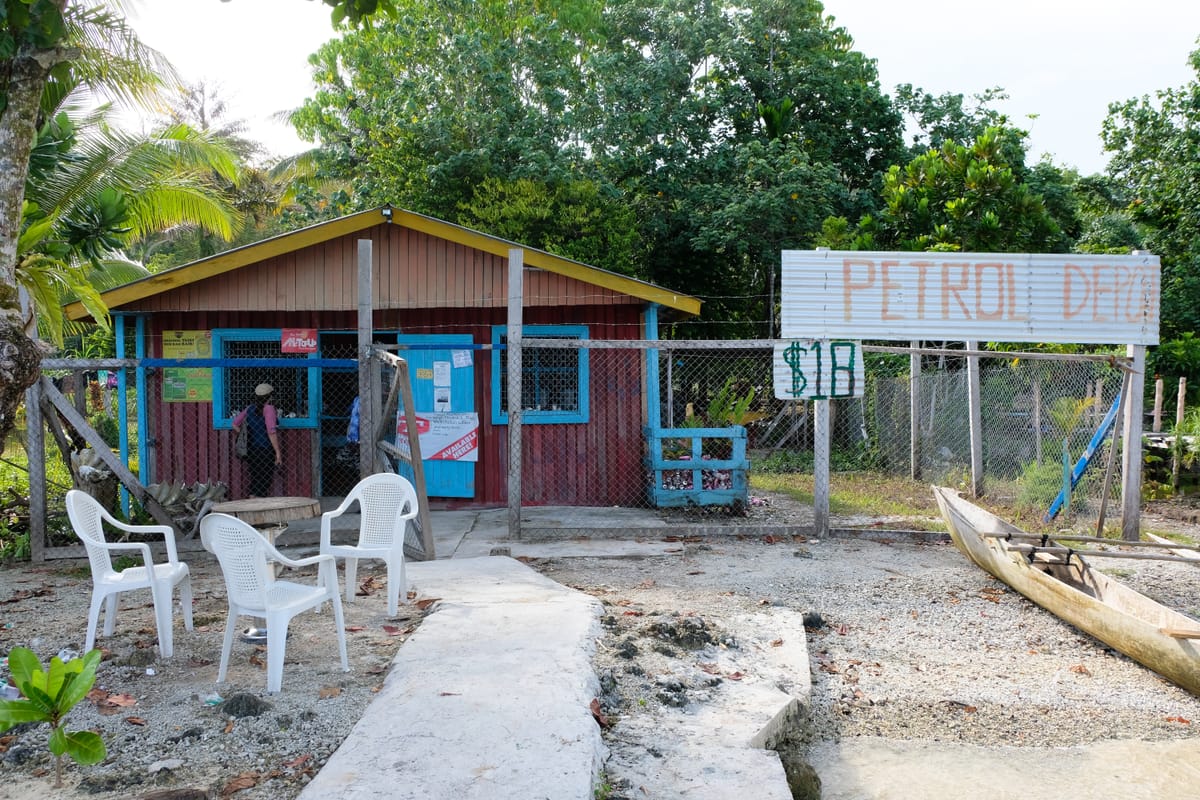Doing business with strangers and the drive to formalise: Lessons from the Solomon Islands
Simon White | This article looks at what the drive to formalise in the Solomon Islands teaches us about the formal economy and the need for reform.

Last week, I had the pleasure of visiting the Solomon Islands to present a report I wrote last year on behalf of the ILO and UNDP.
The report, Supporting the Transition Towards Sustainable Growth and Formalisation in the Solomon Islands, is a National Action Plan for the Solomon Islands Government. It was launched on 28 March 2024.
This work highlighted several lessons regarding the informal economy. It showed me that because business growth involves selling to strangers, business formalisation is essential in accessing new markets. These strangers are from outside the local market. Unlike local customers, they are unknown to the business, and the business is unknown to them. Strangers need some degree of confidence in the business they are buying from. Only through formalisation can businesses begin to give their new customers–these strangers–confidence.
Formalisation as a step towards inclusive growth and economic transformation
The National Action Plan is considered a step towards inclusive growth and economic transformation through formalising informal firms. It presents a strategic framework to support informal business’ transition towards sustainable growth and formalisation.
The objective of the National Action Plan is to increase the number of businesses in the Solomon Islands that choose to formalise and grow.
The mission of the National Action Plan is to provide a framework for coordinated action by national government ministries, departments and agencies, and provincial and local governments to foster the growth and formalisation of micro and small businesses in partnership with their social and development partners.
At the launch, Riley Mesepitu, the Permanent Secretary of the Minister for Commerce Industry, Labour and Immigration, said the National Action Plan “marks a pivotal moment in empowering the informal sector and fostering economic resilience as a fundamental pillar of the National Development Strategy 2016-2035, the NDS. The NDS seeks to grow the economy by improving the social and economic livelihoods of all Solomon Islanders.”
Lessons from the informal economy
Informality is an extremely interesting phenomenon in the Solomon Islands, not least because of what it teaches us about the formal economy. Indeed, informality in the Pacific Region appears to have different drivers than informality in Africa and Asia, for instance.
When I interviewed government officials, civil society, and the business community, I was struck by how embedded the informal economy is in society and the economy. In the Solomon Islands, formal and informal economies operate hand-in-hand.
Every person I interviewed had a family member or close relative engaged in the informal economy. It was common to hear of people who grew up in rural families and smallholder farms that predominantly operated in the informal economy. Even in urban settings, it was not uncommon to learn of people who moved into the informal economy when their formal jobs ended and re-entered the formal economy months or years later if they were lucky enough to find a new formal job.
When the coronavirus pandemic hit, many people left their jobs in the city and moved back to the rural areas and the informal economy as they took safety.
Despite the informal economy's lack of social protection, many people see it as a mechanism for social protection in its own right. When formal employment ends or incomes fail, people turn to subsistence farming and informal cash crops.
In some cases, informal businesses can be highly lucrative. Many described informal business owners as earning three or four times more than full-time teachers or nurses. However, most informal businesses appear to barely earn a living. Informality is often synonymous with living on the breadline and a place of last resort.
Fears of taxation
I found that the fear of tax was the most common disincentive to formalisation. Business registration in the Solomon Islands requires the business owner to apply for a Tax Identification Number (TIN). The Solomon Islands has one of the highest levels of taxation among the Pacific Island countries. Many businesses are concerned that tax registration will increase their financial burdens. They are not inclined to register because the business registration process combines the application for a TIN, which increases the business's costs.
Doing business with strangers and the drive to formalise
Growing a business requires a shift outside of local markets to find a broader pool of customers. This requires growing businesses to do business with strangers.
When informality and formality are so intertwined, presenting a compelling argument for formalisation becomes difficult. For most, the cost-benefit analysis for formalisation does not lead to a decision to formalise.
The most compelling reason to formalise is that it is a prerequisite to growth. If an informal business operator wishes to grow––and many, but not all, do––then they need to move beyond the local market. Growth requires businesses to deal with strangers. Often, these strangers need to have some degree of confidence in the business they are buying from. For most, this confidence comes from knowing the business is legal, registered, licensed, and genuine in what it offers.
While informal businesses can continue to operate in small, often crowded markets, they have little need to formalise. Formalisation will not make them more competitive. It will mainly increase costs.
However, a business that wishes to grow needs to formalise. Only through formalisation can a business expand into new markets.
Creating new incentives to formalise
Unsurprisingly, the lack of incentives makes formalisation more difficult. I am not referring here to government handouts but to market-based incentives for formalisation.
Many respondents to my study from business, government and civil society could not identify any specific benefit to formalisation beyond the argument that it is the right thing to do and good for governance.
Becoming formal is unlikely to improve access to finance in the Solomon Islands. While banks will only lend to formal businesses, most formal businesses cannot access bank finance. Becoming formal is not a path to finance.
There were incidences cited where a business might register so that it can apply for a government grant. Yet this, too, does not guarantee sustained formality. Even those businesses that succeeded in obtaining a grant often failed to fulfil their annual reporting obligations (e.g., tax filings), eroding their formality over time.
The transition towards sustainable growth and formalisation requires the formal economy to send the right signals. It must show how formalisation will improve business access to inputs like finance and new markets.
Towards inclusive growth and economic transformation
While The National Action Plan is a good step for the government towards inclusive growth and economic transformation through formalising informal firms, much more must be done. This involves reforms to the formal economy just as much as reforms that encourage formalisation.
Because the informal and formal are so connected, they should be treated as parts of a broader market system in which private businesses operate. The formal economy should send the right market signs to growth-oriented businesses, giving them a clear sight of the pathway from informality to formality, growth and success.
